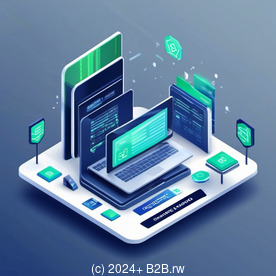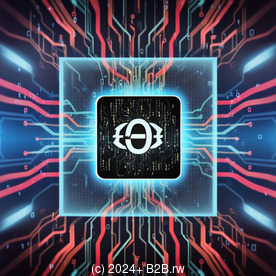
The Impact of Kotlin in E-Commerce Development




Understanding Kotlin: A Programming Language for the Future
Kotlin, engineered by JetBrains and officially released in 2011, has emerged as a premier programming language, especially in the realms of mobile application and backend development. Kotlin's modern features and enhancements over its predecessors, particularly Java, have made it a favored choice for developers striving to create robust, maintainable, and high-performing e-commerce platforms. Its design philosophy emphasizes conciseness, expressiveness, and safety, thus aligning perfectly with the growing demands of the e-commerce industry for swift and reliable applications.
As e-commerce transactions are often time-sensitive, the need for efficient application development has never been more pressing. Kotlin not only facilitates quicker coding through streamlined and intuitive syntax, but it also significantly reduces the amount of boilerplate code typically associated with Java. This improvement allows developers to focus on significant business logic rather than navigating extensive and verbose coding structures.
The language's adoption continues to rise due to its interoperability with the existing Java ecosystem, allowing developers to gradually transition their applications without needing a complete rewrite. This flexibility makes Kotlin an especially appealing option for established businesses seeking to enhance their existing systems rather than starting from scratch.




Kotlin's Economic Perspective: Cost Efficiency and Revenue Growth
From an economic viewpoint, Kotlin presents an opportunity for organizations in the e-commerce sector to attain substantial financial advantages. Rapid application development and deployment can have significant implications for a business's bottom line, enabling quicker responses to market trends and customer needs. In an industry where consumers demand instant gratification and immediate access to information, companies leveraging Kotlin can markedly decrease their time-to-market and fulfill consumer expectations effectively.
Additionally, Kotlin's lower code verbosity translates to fewer lines of code that need to be maintained and tested, which not only reduces maintenance costs but also decreases the chance for bugs that could lead to costly downtime. The languages native features, such as null safety, further enhance application stability, directly contributing to increased consumer trust and satisfaction.
Moreover, Kotlin supports modern programming paradigms like functional reactive programming, enabling the creation of applications that can process and respond to real-time data inputs seamlessly. This ability directly translates to higher customer conversion rates since applications can offer personalized experiences and dynamic pricing strategies tailored to individual usersboth of which are critical for maximizing revenue in e-commerce.




Political and Regulatory Considerations in Kotlin Adoption
In today's world of software development, compliance with regulatory frameworks is not just an obligationit's imperative for building trust with consumers. The rise of data protection laws, such as the General Data Protection Regulation (GDPR) and the California Consumer Privacy Act (CCPA), requires e-commerce businesses to prioritize user privacy without compromising functional performance.
Kotlins emphasis on safety features, especially its strong null-safety system, significantly reduces vulnerabilities associated with inadvertent data exposure or breaches. By enforcing explicit handling of potential null pointers, developers can proactively mitigate risks related to null reference exceptions and enhance overall application reliability. Consequently, Kotlin aids organizations in not only adhering to these regulatory obligations but also building user trust through the assurance that their data is handled with utmost care.
The political landscape can also affect technology adoption through government incentives or support for local software development practices. In some regions, adopting an innovative language like Kotlin can attract attention from policymakers looking to foster growth in their tech ecosystems. By positioning themselves as early adopters of Kotlin, businesses can benefit from potential tax incentives or government-backed initiatives aimed at promoting technological advancement.




The Social Impact: Adapting to User Needs
Understanding consumer behavior is critical in the e-commerce space, where success hinges on providing personalized and inclusive experiences. Kotlin aids developers in creating applications that resonate with diverse user demographics, addressing varying needs and preferences. The importance of user experience cannot be overstated in today's market, where consumers are quick to abandon platforms that fail to deliver seamless and engaging interactions.
One of Kotlin's most robust features is its support for coroutines, which allows for easy handling of complex asynchronous tasks without blocking the main thread. This capacity is vital for e-commerce platforms where fast loading times and uninterrupted user experiences can significantly influence purchasing decisions. For instance, sites utilizing Kotlin can implement features like live inventory updates and real-time personalized recommendations without sacrificing performance.
Furthermore, Kotlin's capabilities allow for engaging accessibility features that cater to individuals with disabilities, promoting inclusivity in e-commerce applications. By integrating these tools, businesses can comply with accessibility guidelines while expanding their customer base and enhancing their corporate reputation as socially responsible organizations that champion equality.




Technological Edge: How Kotlin Enhances E-Commerce Solutions
Kotlins technological strengths position it as a game-changer for e-commerce applications. By integrating Kotlin into their tech stacks, businesses can leverage cutting-edge solutions that improve not only user engagement but also operational efficiency. The language's interoperability with frameworks like Spring and Ktor enables developers to build powerful backend services with reduced complexity, simplifying interactions between frontend applications and server-side components.
Specific Advantages of Kotlin in E-Commerce
- Rapid Application Development: Kotlin's clear, expressive syntax minimizes boilerplate code, enabling developers to write applications faster and more efficiently.
- Robust Security Features: Null safety and strong type systems reduce the likelihood of runtime errors and security vulnerabilities, helping maintain data integrity.
- Cross-Platform Capabilities: Kotlin can seamlessly function for both server-side and Android/iOS mobile applications, providing a unified development experience.
- Community and Ecosystem: A rapidly growing and supportive community offers a wealth of libraries, tools, and frameworks specifically designed to streamline e-commerce development.
- Integration with Modern Architectural Patterns: Kotlin supports modern architectural practices such as microservices, which can enhance scalability and flexibility in application development.




Historical Context: The Evolution of Programming Languages
The historical context of programming languages reveals a trajectory marked by innovation and adaptation to changing technological landscapes. Java, once the gold standard for enterprise applications, laid the groundwork for many e-commerce platforms. However, as demands for faster, safer, and more efficient solutions have emerged, so too has the need for modern alternatives.
Kotlin's rise reflects a critical shift in the programming paradigm that prioritizes developer productivity and user experience. An examination of this transition emphasizes how technological advancements push industries to embrace languages that can offer enhanced security, better performance, and innovative features that align with contemporary expectations. This journey from Java to Kotlin is not just a transition in syntax but rather a strategic evolution towards technologies that resonate with the needs of businesses and consumers alike.




Conclusion: Embracing Kotlin for E-Commerce Success
In essence, the e-commerce industry's dynamic landscape necessitates the adoption of modern technologies that can keep pace with consumer demands. Kotlin stands out as a promising ally for businesses aiming to enhance their application development processes. With its focus on speed, efficiency, and security, Kotlin empowers organizations to not only streamline operations but also to innovate by delivering exceptional user experiences.
As e-commerce continues to expand globally, harnessing the potential of Kotlin can provide businesses with the tools necessary to thrive. By investing in Kotlin-driven solutions, organizations can secure a competitive edge in a saturated market, ensuring they meet and exceed consumer expectations while fostering trust and loyalty. Kotlin is not merely a programming languageit's a strategic asset that can open doors to new opportunities and innovation in the ever-evolving world of e-commerce.
Unlock Your E-Commerce Potential with Our Kotlin Solutions
Are you ready to leverage the transformative power of Kotlin in your e-commerce applications? Our dedicated and experienced team at b2b.rw is eager to partner with you to navigate the complexities of modern software development. We specialize in creating tailored e-commerce solutions that harness the full advantages of Kotlin.
Pricing for our comprehensive Kotlin development services starts at $950 . We encourage you to take the first step towards elevating your business by proceeding to our Checkout Gateway . Once there, you can use our Payment Processor to secure your project and confirm your investment in the future of your e-commerce platform. If you have any questions or require further information, feel free to reach out to us via email, phone, or our online contact form. We appreciate your interest in our services and look forward to collaborating with you on this exciting journey!
